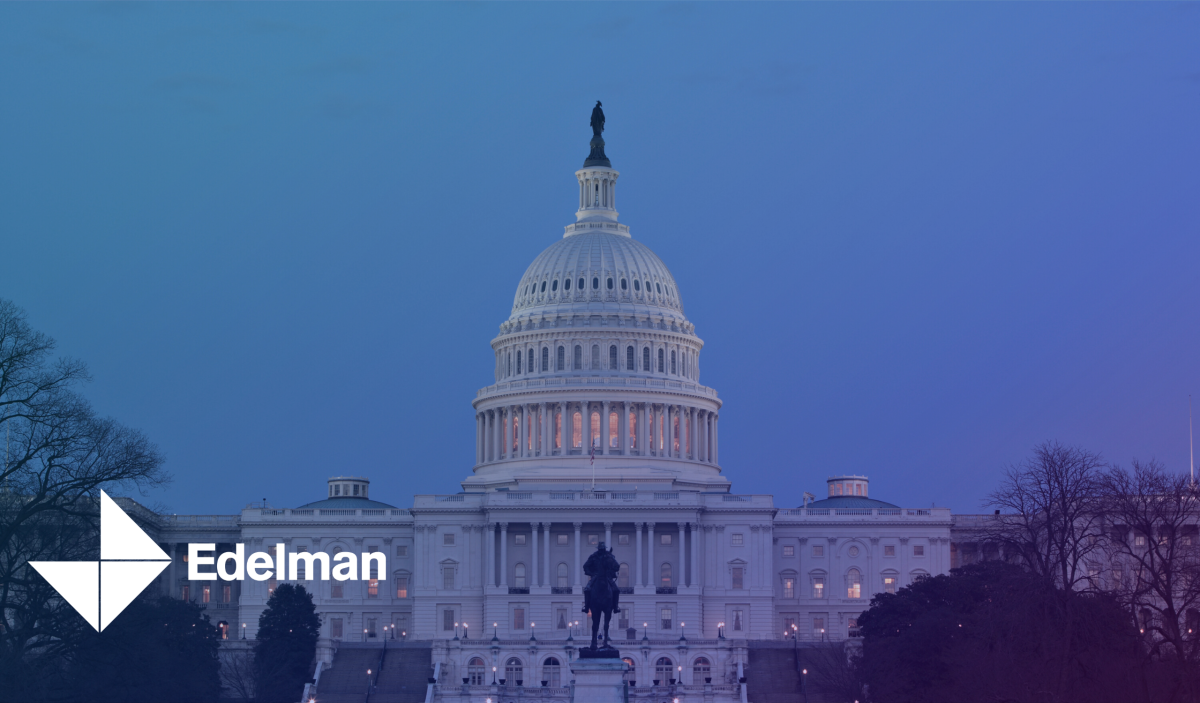The House and Senate Return from Thanksgiving Break and are in Session through Friday
As we enter the final month of the 118th Congress, Washington works to wrap up year-end legislation and prepare for the incoming trifecta of Republican control of the White House and both chambers. There are a total of 12 legislative days before the latest stopgap funding measure expires on December 20th, which means Congress must act in the next three weeks to avert a government shutdown. As it stands, the must-pass priorities for December are:
- A short-term Continuing Resolution (CR), which would likely run through March.
- Conference Report of the FY2025 National Defense Authorization Act (NDAA).
- Supplemental funding in response to recent hurricanes and natural disasters.
The House Rules Committee is scheduled to meet today, at 4PM, to prepare floor consideration of:
- Crucial Communism Teaching Act (H.R.5349), which would require the Victims of Communism Memorial Foundation to develop a curriculum to promote understanding of how communism conflicts with democratic principles.
- Prove It Act (H.R.7198), which would authorize small businesses to petition the federal government to review an agency’s certification that a proposed regulation would not have a significant economic impact on small businesses and require agencies to publish guidance documents for regulations that have a significant economic impact on small businesses.
The House will also hold suspension votes this week on over 50 bills from the Judiciary, Natural Resources, Oversight, and Financial Services Committees. The full list – which can be found HERE – includes:
Congressional Agenda
Appropriations: It appears all but certain that Congress will not complete work on the FY2025 Appropriations process this month as negotiators still have not reached an agreement on a topline number and therefore cannot complete individual spending bills before the December 20th deadline. Speaker Mike Johnson already indicated he prefers a CR that runs into early next year and has received limited pushback on the plan (which mirrors the short-term CR passed by Congress following the 2016 elections) and the Biden Administration has already sent over the list of anomalies that it wants to see addressed in a CR. There are several extensions that will likely be attached to and run the length of the CR, including Farm Bill authorizations, the National Flood Insurance Program, and health extenders. Additional legislation is traditionally difficult to attach to a CR, although supporters and advocates will certainly try. But with limited time left in the lame-duck session, the CR is likely to be relatively “clean.”
Disaster Supplemental: The Biden Administration requested $95 billion for a disaster supplemental, primarily to address damage from recent hurricanes and wildfires, and while congressional negotiators are working to pare back the size of the supplemental, several lawmakers from impacted regions are also working to ensure their priorities are included in the supplemental package.
FY2025 National Defense Authorization Act: The NDAA process continues to move forward and negotiators have made the necessary progress on the underlying legislation, though a final agreement has not been reached, in part because Appropriators have not reached an agreement on a topline defense number. However, we expect a breakthrough is imminent, which will put NDAA on track to complete final passage before the end of the 118th Congress.
NDAA continues to be eyed as a potential vehicle for additional legislation, including a China-related package, with Speaker Johnson looking to include outbound investment provisions, the House-passed BIOSECURE Act (H.R.8333), and potential China-related AI competitiveness legislation. Senate Majority Leader Schumer has indicated his priorities include cannabis banking legislation, but that faces significant hurdles in the House.
Budget Reconciliation: Republicans have made clear they intend to advance their agenda in the 119th Congress by leveraging the budget reconciliation process, which allows certain legislation to pass the Senate with only a simple majority (50+1 votes). House Majority Leader Steve Scalise laid out top priorities at a recent meeting of the Republican Conference:
- Extension of the Tax Cuts and Jobs Act.
- Border security.
- Increased domestic energy production.
- Addressing waste, fraud, and abuse, and otherwise draining “the Swamp.”
With a razor-thin House majority, the multistep process required for budget reconciliation presents a formidable challenge. Therefore, no decisions on timing, substance, and what will and will not be included have been made, in part because they will require substantial input and guidance from the incoming Trump Administration. House and Senate leadership and the transition have all indicated they want to move fast as possible and are considering moving forward on the first step – a budget resolution – before Inauguration Day.
Meanwhile, incoming Senate Republican Policy Committee Chair Shelley Moore Capito of West Virginia plans to host a policy retreat for Senate Republicans at the Library of Congress, where they will discuss their priorities for budget reconciliation.
House Committee Leadership Organizing: The House continues to prepare for the 119th Congress, with the Republican Steering Committee expected to consider a waiver request for Transportation and Infrastructure Committee Chair Sam Graves of Missouri to serve an additional two years as Chair of the Committee beyond the six-year limit under Conference rules. Waivers are rarely granted but Graves is considered to have a relatively decent chance. The Steering Committee will then consider contested and non-contested chairmanships next week. The key contested races are:
- Energy and Commerce: The announced candidates are Reps. Brett Guthrie of Kentucky (Chair of Health Subcommittee) and Bob Latta of Ohio (Chair of the Communications and Technology Subcommittee).
- Financial Services: The announced candidates are Reps. Andy Barr of Kentucky (Chair of the Subcommittee on Financial Institutions and Monetary Policy), French Hill of Arkansas (Vice Chair of the Committee and Chair of the Subcommittee on Digital Assets, Financial Technology, and Inclusion), Bill Huizenga of Michigan (Chair of the Subcommittee on Oversight and Investigations), and Frank Lucas of Oklahoma (the most senior Republican member of the Committee).
- Foreign Affairs: The announced candidates are Reps. Ann Wagner of Missouri (Vice Chair of the Committee), Darrell Issa of California (a senior member of the Committee), Brian Mast of Florida (Chair of the Subcommittee on Oversight and Accountability), and Joe Wilson of South Carolina (Chair of the Subcommittee on Middle East, North Africa, and Central Asia).
Oversight: A few notable oversight-related hearings are lined up this week, including:
- U.S. Citizenship and Immigration Services: The House Judiciary Subcommittee on Immigration Integrity, Security, and Enforcement convenes a hearing (on Wednesday, at 10:15AM).
- Biden Administration’s LNG export ban: Assistant Secretary of Energy for Fossil Energy and Carbon Management Brad Crabtree appears before the House Oversight and Accountability Subcommittee on Economic Growth, Energy Policy, and Regulatory Affairs (on Wednesday, at 2:30PM).
- U.S. Census Bureau: Director Robert Santos appears before the House Oversight and Accountability Committee (on Thursday, at 10AM).
- U.S. Postal Service: The Senate Homeland Security and Governmental Affairs Committee convenes a hearing on proposed service changes (on Thursday, at 10AM).



